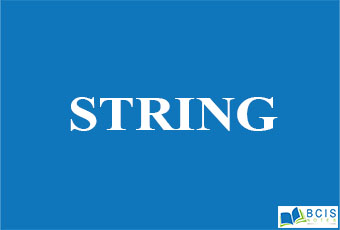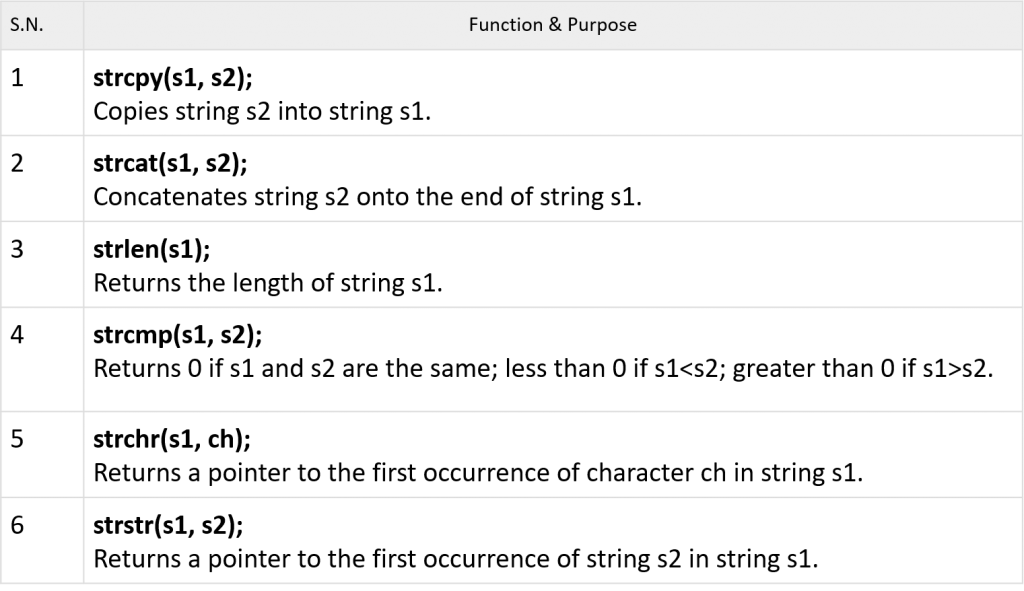
Introduction to String
Introduction to String is a data type used in programmings, such as an integer and floating-point unit, but is used to represent text rather than numbers. It is comprised of a set of characters that can also contain spaces and numbers. In C programming, an array of characters is called a string. A string is terminated by a null character /0.
char greeting[6] = {‘H’, ‘e’, ‘l’, ‘l’, ‘o’, ‘\0’};
For example, the word “hamburger” and the phrase “I ate 3 hamburgers” are both strings. Even “12345” could be considered a string, if specified correctly. Typically, programmers must enclose strings in quotation marks for the data to recognized as a string and not a number or variable name.
For example, in the comparison:
if (Option1 == Option2) then …
Option1 and Option2 may be variables containing integers, strings, or other data. If the values are the same, the test returns a value of true, otherwise, the result is false. In comparison:
if (“Option1” == “Option2”) then …
Option1 and Option2 are being treated as strings. Therefore the test is comparing the words “Option1” and “Option2,” which would return false. The length of a string is often determined by using a null character.
String Function

This is all about the description of Introduction to String.
You May Also Like:Types of Looping and Function

Leave a Reply